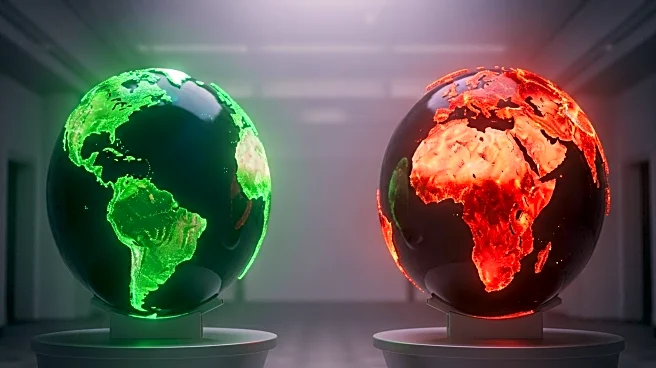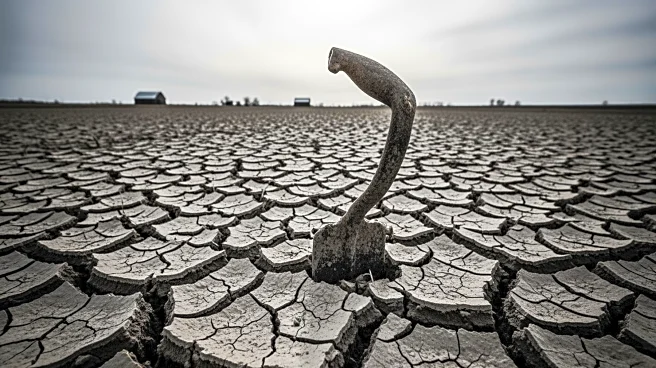What's Happening?
At the United Nations, four global leaders presented differing perspectives on climate change, highlighting the complexity of addressing the issue. U.S. President Donald Trump dismissed climate change as a scam, while Chinese President Xi Jinping announced emission cuts, positioning China as a leader in renewable energy. Tuvalu's Prime Minister Feleti Penitala Teo emphasized the existential threat of rising sea levels, and Brazilian President Luiz Inacio Lula da Silva called for decisive action. The varied approaches underscore the challenges in achieving global consensus on climate action.
Why It's Important?
The divergent views on climate change among world leaders reflect the geopolitical and economic complexities of addressing global warming. The lack of consensus poses challenges for international cooperation and the implementation of effective climate policies. The positions taken by major powers like the U.S. and China can significantly influence global efforts to combat climate change. The discussions at the UN highlight the need for collaborative solutions that consider the diverse interests and priorities of different nations.
What's Next?
The upcoming climate negotiations in Brazil may serve as a critical platform for advancing international climate agreements. Countries will need to reconcile their differences and work towards common goals to address the urgent threat of climate change. The role of emerging economies and small island nations will be crucial in shaping the global climate agenda. Continued advocacy and pressure from civil society and environmental groups are likely to influence future policy decisions.








